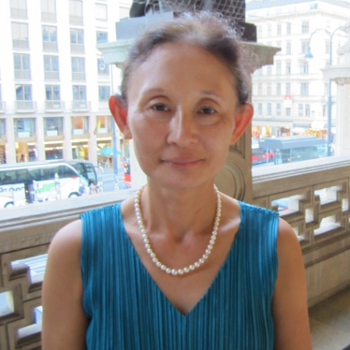Oper Leipzig’s ambitious undertaking to perform all 13 operas by Richard Wagner in chronological order over just three weeks came to a successful conclusion with a rousing performance of Parsifal, greeted with a ten-minute ovation by the audience, many of whom travelled from across the world. Not all of the performances were without weakness – there were changes of performers due to illness and the productions are of various vintages. Nevertheless, the opportunity to experience Wagner’s progression as a composer in one sitting was unique and informative. Massive kudos to the management and musicians of Oper Leipzig for a worthy project well done. The Festival Wagner 22 also marks the end of Ulf Schirmer’s tenure as General Music Director. He was honoured with an on-stage presentation of flowers at the end of the evening.
Roland Aeschlimann's production is over 15 years old and harks back to the period when abstract and timeless staging was in vogue. A scrim in front of the stage makes action hazy and creates unnecessary distance from the audience. It illuminates the names of the Grail Knights before each act but could have been removed for the main action. Vertical and towering sets for the forest in Act 1 are replaced by a large round recess in the back during the transformation scene. The knights’ realm is represented by foreign inscriptions on an overhanging circle. There are no magic castle or garden in Act 2, just colourful and brightly lit swirling circles and a massive spear. The director presents perhaps one of the most pan-religious, non-Christian and philosophical stagings of redemption and salvation of mankind through compassion and love in Act 3. As Gurnemanz and Parsifal contemplate the beauty of nature and the miracle of Good Friday, Kundry unveils rows of seated Buddha statues. Gurnemanz is clad as a Buddhist monk. The director’s years spent in Japan have resulted in an unexpected and moving confluence of Wagner’s increasing fascination with Buddhism at the end of his life and the opera is stripped of its usual Christian symbolism.
For those who may expect opera productions to be full of new ideas and insights, Aeschlimann's sparse production may seem static and boring. With Schirmer’s leisurely and meticulous conducting, this was a rare opportunity to luxuriate in Wagner’s final stagework. While some soloists may have benefited from additional rehearsal time, Leipzig managed to assemble an excellent group of singers, some from their own ensemble, others well-established singers. Notable among the cast were René Pape as Gurnemanz and Elena Pankratova as Kundry, both of whom managed to convey inner turmoil and suffering with their nuanced and heartfelt singing, backed by solid technique. It is not just Amfortas, with his physical wound, who needs redemption. Pape’s voice took a while to warm up in Act 1, but he was soon in full command of the role, and the famous “Du siehst, mein Sohn, zum Raum wird hier die Zeit” (You see, my son, here time becomes space) was sung with authority and majesty. His bass gained sonority in the crucial second half of Act 3. Pankratova’s massive vocal range as well as the consistent beauty and clarity of her phrasing surprised many in the audience who were new to this soprano. She stretched the high note at the beginning of Kundry’s outcry “lachte” for what seemed like many seconds before descending to the low note of the role’s deep despair.
Unfortunately Andreas Schager chose to portray Parsifal as a one-dimensional character unable to undergo personal growth and change throughout the course of the opera. He was almost always loud and forceful in his singing and ignored the text at times, as when he failed to even look at Kundry when he sings “Du weinest” (You are weeping) in Act 3. It was nice to see veteran Wagnerian Falk Struckmann make a brief but impressive appearance as Klingsor. Mathias Hausmann, who was the ubiquitous and essential baritone of Wagner 22, rounded out his contribution as a sonorous Amfortas. Smaller roles as well as the chorus sang well to honour their last outing with Schirmer. The Gewandhausorchester, apart from a very few unsteady brass notes, was in great form, with every player seeming to give their best to create the unique sound space and time that is Parsifal.




